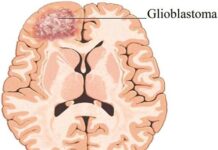Researchers have developed a two-step approach using whole exome sequencing to zero in on genes and pathways that predict whether cancer patients will respond to immunotherapy. The study published in Nature Communications and conducted by researchers at New York University, Weill Cornell Medicine, and the New York Genome Center, illustrates how the use of whole exome sequencing can better predict treatment response than current laboratory tests.
“Can we better predict who will benefit from immunotherapy? Scientists have developed various biomarkers that help anticipate immunotherapy treatment response, but there’s still an unmet need for a robust, clinically practical predictive model,” said Neville Sanjana, assistant professor of biology at NYU, assistant professor of neuroscience and physiology at NYU Grossman School of Medicine, a core faculty member at New York Genome Center, and the study’s co-senior author.
While whole exome sequencing is not widely used in cancer treatment, some recent studies of immunotherapies have started to include sequencing. These studies are small, but together can help illuminate the relationship between genomic factors and how patients respond to immunotherapy.
The researchers combined data from six previous immunotherapy studies of patients with melanoma, lung cancer, bladder cancer, and head and neck cancer. Whole exome sequencing was available for all participants, who were treated with an immune checkpoint inhibitor (either anti-PD-1 or anti-CTLA-4).
“These results suggest that the use of broader diagnostics such as whole exome or even whole genome sequencing may significantly improve our ability to predict who will respond to immunotherapy—essentially, showing that more data does help to better predict treatment response,” said Marcin Imieliński, associate professor of computational genomics and associate professor of pathology and laboratory medicine at Weill Cornell Medicine, a core faculty member at the New York Genome Center, and the study’s co-senior author.
























